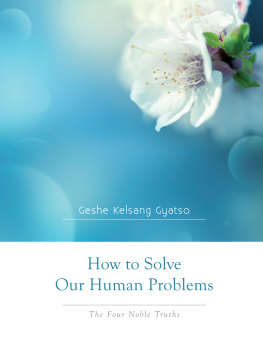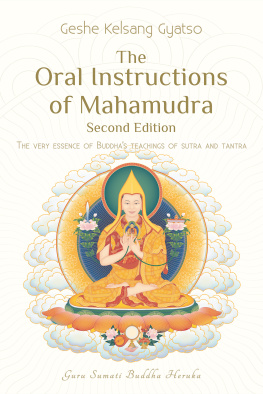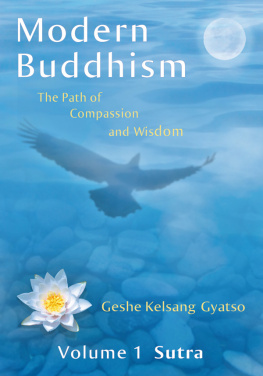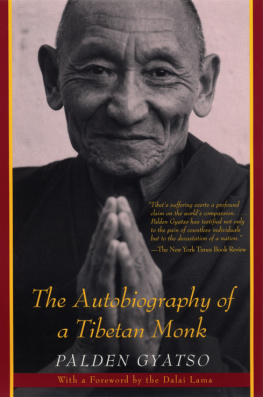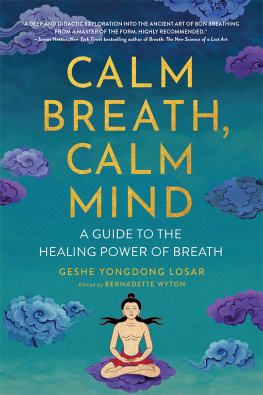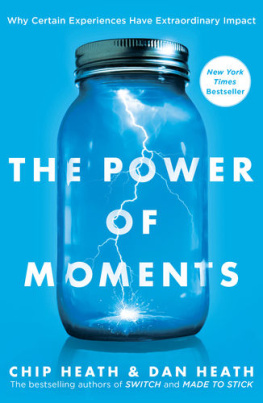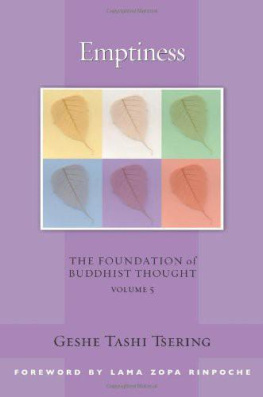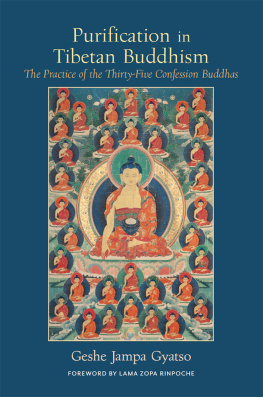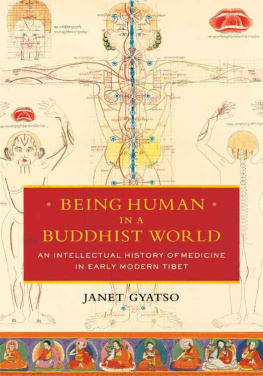Geshe Kelsang Gyatso - How to Solve Our Human Problems
Here you can read online Geshe Kelsang Gyatso - How to Solve Our Human Problems full text of the book (entire story) in english for free. Download pdf and epub, get meaning, cover and reviews about this ebook. year: 2011, publisher: Tharpa Publications, genre: Religion. Description of the work, (preface) as well as reviews are available. Best literature library LitArk.com created for fans of good reading and offers a wide selection of genres:
Romance novel
Science fiction
Adventure
Detective
Science
History
Home and family
Prose
Art
Politics
Computer
Non-fiction
Religion
Business
Children
Humor
Choose a favorite category and find really read worthwhile books. Enjoy immersion in the world of imagination, feel the emotions of the characters or learn something new for yourself, make an fascinating discovery.
- Book:How to Solve Our Human Problems
- Author:
- Publisher:Tharpa Publications
- Genre:
- Year:2011
- Rating:5 / 5
- Favourites:Add to favourites
- Your mark:
- 100
- 1
- 2
- 3
- 4
- 5
How to Solve Our Human Problems: summary, description and annotation
We offer to read an annotation, description, summary or preface (depends on what the author of the book "How to Solve Our Human Problems" wrote himself). If you haven't found the necessary information about the book — write in the comments, we will try to find it.
How to Solve Our Human Problems — read online for free the complete book (whole text) full work
Below is the text of the book, divided by pages. System saving the place of the last page read, allows you to conveniently read the book "How to Solve Our Human Problems" online for free, without having to search again every time where you left off. Put a bookmark, and you can go to the page where you finished reading at any time.
Font size:
Interval:
Bookmark:

Human Problems
Meaningful to Behold
Clear Light of Bliss
Heart of Wisdom
Universal Compassion
Joyful Path of Good Fortune
Guide to Dakini Land
The Bodhisattva Vow
Heart Jewel
Great Treasury of Merit
Introduction to Buddhism
Understanding the Mind
Tantric Grounds and Paths
Ocean of Nectar
Essence of Vajrayana
Living Meaningfully, Dying Joyfully
Eight Steps to Happiness
Transform Your Life
The New Meditation Handbook
Mahamudra Tantra
Modern Buddhism
Profits from the sale of this book are designated to the NKT-IKBU International Temples Project Fund according to the guidelines in A Money Handbook [Reg. Charity number 1015054 (England)]
A Buddhist Charity, Building for World Peace
www.kadampatemples.org
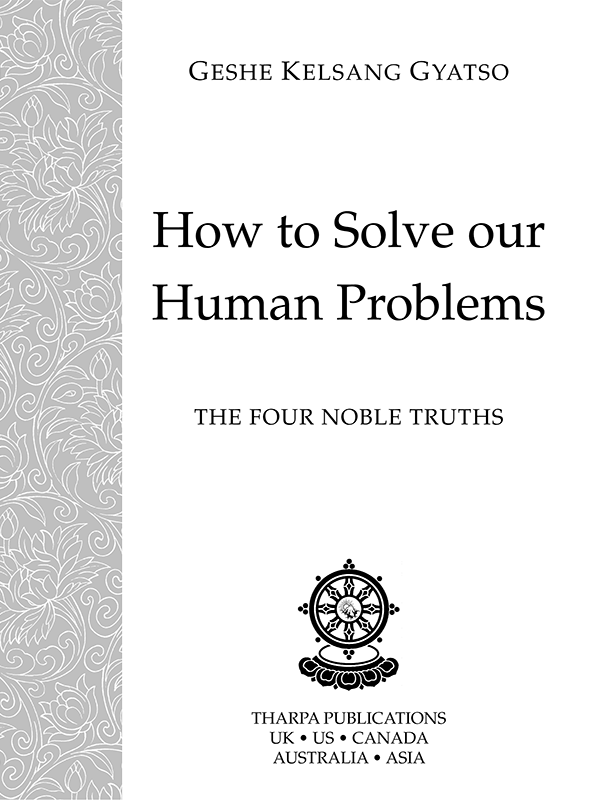
First published in 2005
Reprinted 2005, 2012
Digital edition first published 2012
The right of Geshe Kelsang Gyatso to be identified as author of this work has been asserted by him in accordance with the Copyright, Designs, and Patents Act 1988.
All rights reserved.
No part of this book may be reproduced in any form or by any means except for the quotation of brief passages for the purpose of private study, research, or review.
Tharpa Publications UK Office
Conishead Priory
Ulverston, Cumbria
LA12 9QQ, England
Tharpa Publications US Office
47 Sweeney Road
Glen Spey
NY 12737, USA
New Kadampa Tradition-International Kadampa Buddhist Union 2000
Library of Congress Control Number: 2004109278
British Library Cataloguing in Publication Data
A catalogue record for this book is available from the British Library.
ISBN 978-1-906665-06-7 e-book
ISBN 978-0-948006-38-8 hardback
ISBN 978-0-948006-37-1 paperback
ISBN 978-1-906665-39-5 Adobe Portable Document format (.pdf)
These photographs are of the eight auspicious symbols that adorn the Kadampa Buddhist Temple in Ulverston, England.
The instructions given in this book are methods for improving our human nature and qualities through developing the capacity of our mind. In recent years our knowledge of modern technology has increased considerably, and as a result we have witnessed remarkable material progress, but there has not been a corresponding increase in human happiness. There is no less suffering in the world today, and there are no fewer problems. Indeed, it might be said that there are now more problems and greater dangers than ever before. This shows that the cause of happiness and the solution to our problems do not lie in knowledge of material things. Happiness and suffering are states of mind and so their main causes are not to be found outside the mind. If we want to be truly happy and free from suffering, we must learn how to control our mind.
When things go wrong in our life and we encounter difficult situations, we tend to regard the situation itself as our problem, but in reality whatever problems we experience come from the side of the mind. If we were to respond to difficult situations with a positive or peaceful mind they would not be problems for us; indeed, we may even come to regard them as challenges or opportunities for growth and development. Problems arise only if we respond to difficulties with a negative state of mind. Therefore, if we want to be free from problems, we must transform our mind.
Buddha taught that the mind has the power to create all pleasant and unpleasant objects. The world is the result of the karma, or actions, of the beings who inhabit it. A pure world is the result of pure actions and an impure world is the result of impure actions. Since all actions are created by mind, ultimately everything, including the world itself, is created by mind. There is no creator other than the mind.
Normally we say, I created such and such, or, He or she created such and such, but the actual creator of everything is the mind. We are like servants of our mind; whenever it wants to do something, we have to do it without any choice. Since beginningless time until now, we have been under the control of our mind, without any freedom; but, if we sincerely practise the instructions given in this book, we can reverse this situation and gain control over our mind. Only then shall we have real freedom.
Through studying many Buddhist texts we may become a renowned scholar; but, if we do not put Buddhas teachings into practice, our understanding of Buddhism will remain hollow, with no power to solve our own or others problems. Expecting intellectual understanding of Buddhist texts alone to solve our problems is like a sick person hoping to cure his or her illness through merely reading medical instructions without actually taking the medicine. As Buddhist Master Shantideva says:
We need to put Buddhas teachings, the Dharma, into practice
Because nothing can be accomplished just by reading words.
A sick man will never be cured of his illness
Through merely reading medical instructions!
Each and every living being has the sincere wish to avoid all suffering and problems permanently. Normally we try to do this by using external methods, but no matter how successful we are from a worldly point of view no matter how materially wealthy, powerful, or highly respected we become we shall never find permanent liberation from suffering and problems. In reality, all the problems we experience day to day come from our self-cherishing and self-grasping misconceptions that exaggerate our own importance. However, because we do not understand this, we usually blame others for our problems, and this just makes them worse. From these two basic misconceptions arise all our other delusions, such as anger and attachment, causing us to experience endless problems.
I pray that everyone who reads this book experiences inner peace and accomplishes the real meaning of human life.
Geshe Kelsang Gyatso,
USA,
April 2004
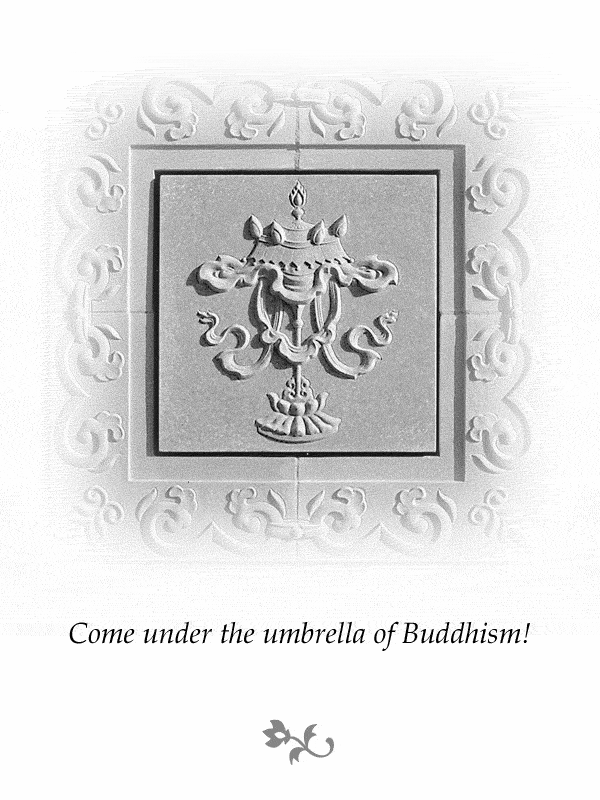
To solve our human problems and enable us to find everlasting peace and happiness, Buddha gave the most profound teachings for us to use as practical advice. His teachings are known as Dharma, which means supreme protection from suffering. Dharma is the actual method to solve our human problems. To understand this, first we should consider what is the real nature of our problems and what are their main causes.
Our problems do not exist outside our mind. The real nature of our problems is our unpleasant feelings, which are part of our mind. When our car, for example, has a problem, we often say, I have a problem, but in reality it is not our problem but the cars problem. Our problems develop only when we experience unpleasant feelings. The cars problems exist outside the mind, whereas our problems are inside our mind. By differentiating between animate and inanimate problems like this, we can understand that the real nature of our problems is our own feelings, which are part of our mind.
All our problems our unpleasant feelings come from our delusions of attachment and self-grasping ignorance, therefore these delusions are the main causes of our problems. We have strong attachment to the fulfilment of our own wishes and for this aim we work very hard throughout our life, experiencing many difficulties and problems. When our wishes are not fulfilled we experience unhappiness and depression, which often causes us to become angry, creating more problems for both ourself and others. We can understand this clearly through our own experience. When we lose our friends, job, status, or reputation and so forth, we experience pain and many difficulties. This is because of our strong attachment to these things. If we had no such attachment, there would be no basis for experiencing suffering and problems at their loss.
Font size:
Interval:
Bookmark:
Similar books «How to Solve Our Human Problems»
Look at similar books to How to Solve Our Human Problems. We have selected literature similar in name and meaning in the hope of providing readers with more options to find new, interesting, not yet read works.
Discussion, reviews of the book How to Solve Our Human Problems and just readers' own opinions. Leave your comments, write what you think about the work, its meaning or the main characters. Specify what exactly you liked and what you didn't like, and why you think so.

